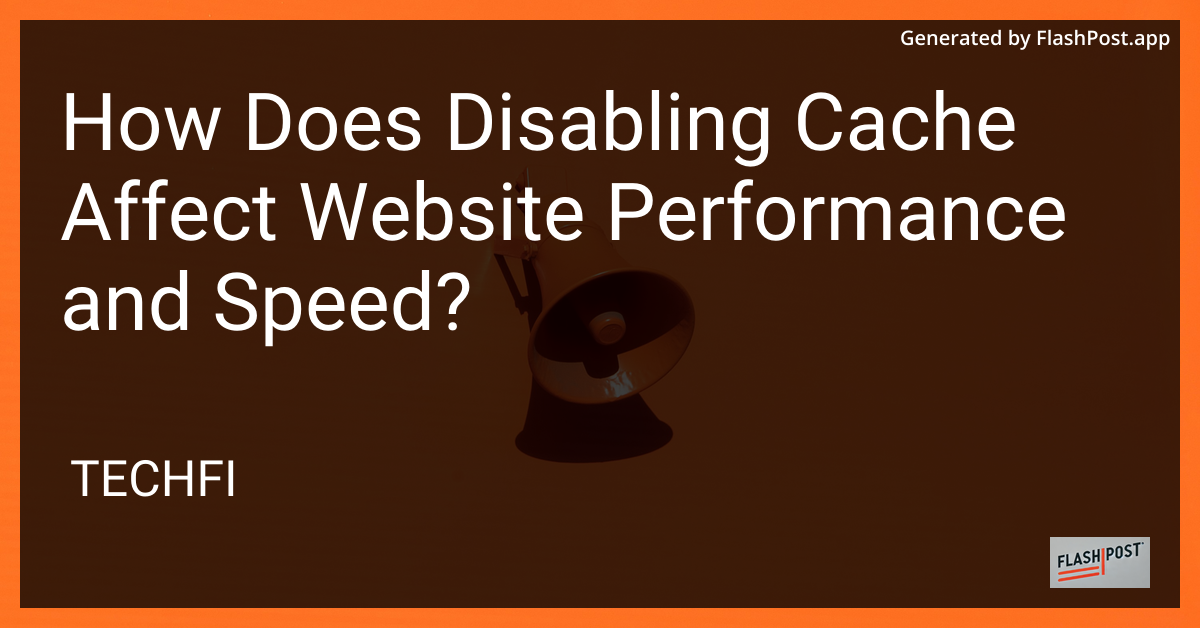How Does Disabling Cache Affect Website Performance and Speed?

Caching is a crucial component of web infrastructure that significantly boosts website speed and performance. However, there are scenarios where disabling cache is considered. Let's understand how disabling cache affects website performance and speed.
Understanding Caching
Caching involves storing copies of files temporarily to reduce data retrieval time. Browsers, servers, and CDNs can cache different types of data, like HTML pages, images, and scripts. This process ensures that the next time a user visits your site, it loads faster because the browser fetches stored content instead of requesting it again from the server.
Effects of Disabling Cache
Disabling cache can greatly impact website performance and speed. Here’s how:
1. Increased Server Load
With caching, servers can deliver content faster because repeated requests for the same content can be handled from cache storage. Without caching, each request leads back to the origin server, increasing server load and potentially causing slower response times.
2. Slower Page Load Speed
Caching accelerates page load times by serving static content quickly. Disabling cache means every asset has to be fetched anew, increasing the time it takes for pages to load. This might lead to a poorer user experience, especially for content-heavy pages.
3. Higher Bandwidth Consumption
Every time a user requests a webpage, all resources need to be fetched again, consuming more bandwidth. This can be costly depending on how your hosting plan charges for data usage.
4. Less Efficient Client-Side Rendering
Modern web applications often rely on complex JavaScript structures and stylesheets. Disabling cache means these files are reloaded with every page view or interaction, reducing the efficiency of client-side rendering and delaying interactive elements.
When to Consider Disabling Cache
In some cases, disabling cache may be necessary, such as:
- Development Testing: When developers need to ensure changes are immediately reflected.
- Sensitive Data: For applications dealing with sensitive information, disabling cache may prevent unauthorized access to outdated data.
How to Disable Cache for Specific Scenarios
- Learn how to disable caching on Opera for browser-specific solutions.
- Implement cache prevention in CakePHP for server-side management.
- Understand caching in jQuery AJAX requests to handle dynamic content fetching efficiently.
- Explore how to disable caching in Solr queries for search optimization.
Conclusion
While caching is integral for enhanced website performance and speed, there are specific scenarios where disabling it makes sense. Always weigh the pros and cons, and choose the approach that best fits your website's needs and context. ```